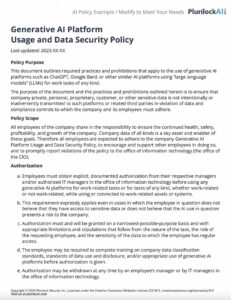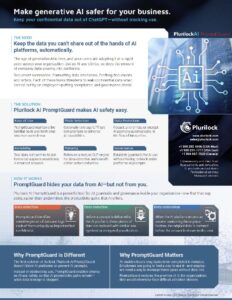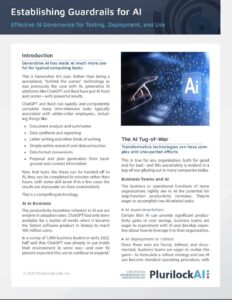In the ever-evolving landscape of digital connectivity and technological advancements, information security stands as a critical pillar in safeguarding sensitive data and systems. As organizations increasingly rely on digital platforms and interconnected networks, the significance of robust information security measures cannot be overstated. This deep dive will explore what information security is, why it matters, and provide in-depth analysis on its importance in the realm of cybersecurity.
Understanding Information Security
Definition and Scope
Information security, often referred to as cybersecurity, encompasses a broad range of practices, technologies, and policies designed to protect information, data, and systems from unauthorized access, disclosure, alteration, and destruction. It involves the application of preventive measures to ensure the confidentiality, integrity, and availability of information.
The scope of information security extends beyond traditional IT systems and includes various forms of data, such as intellectual property, financial records, personal information, and even the operational integrity of critical infrastructure. Information security is a multidimensional discipline that combines technology, processes, and human factors to create a comprehensive defense against cyber threats.
Key Components
- Confidentiality: Ensuring that sensitive information is only accessible to authorized individuals or entities. This involves encryption, access controls, and secure communication channels.
- Integrity: Guaranteeing the accuracy and trustworthiness of data by preventing unauthorized modifications. Techniques like checksums, digital signatures, and version controls play a crucial role in maintaining data integrity.
- Availability: Ensuring that information and systems are accessible when needed. This involves measures such as redundancy, failover systems, and robust network infrastructure to mitigate disruptions caused by cyberattacks or technical failures.
- Authentication: Verifying the identity of users, devices, or systems to prevent unauthorized access. This can involve passwords, biometrics, multi-factor authentication, and other identity verification mechanisms.
- Authorization: Granting appropriate access privileges to individuals or systems based on their authenticated identity. Access control lists, role-based access controls, and least privilege principles are fundamental to effective authorization.
- Security Governance: Establishing policies, procedures, and standards to guide the organization’s approach to information security. This includes risk management, compliance, and accountability frameworks.
Why Information Security Matters
Protection Against Cyber Threats
The digital landscape is fraught with a myriad of cyber threats, ranging from common malware and phishing attacks to sophisticated advanced persistent threats (APTs). Without adequate information security measures in place, organizations become vulnerable to these threats, exposing themselves to data breaches, financial losses, and reputational damage.
- Data Breaches: Cybercriminals often target sensitive information such as personal identifiable information (PII), financial records, and intellectual property. A successful breach can have severe consequences, leading to financial losses and erosion of trust.
- Financial Losses: Cyberattacks can result in significant financial losses for organizations. This includes the costs associated with recovering from an attack, legal liabilities, and the potential loss of business due to reputational damage.
- Reputational Damage: A security breach can tarnish an organization’s reputation, eroding trust among customers, partners, and stakeholders. Rebuilding trust post-incident is often a challenging and time-consuming process.
- Regulatory Compliance: Many industries are subject to strict regulatory frameworks governing the protection of sensitive information. Failure to comply with these regulations can result in legal penalties and fines.
Safeguarding Intellectual Property
For many organizations, intellectual property (IP) is a valuable asset that sets them apart from competitors. Information security measures are crucial in protecting trade secrets, patents, and proprietary information from theft or espionage. Unauthorized access to IP can lead to a loss of competitive advantage and potentially cripple an organization’s innovation and market position.
Preserving Privacy
As the digital ecosystem becomes more intertwined with our daily lives, the protection of personal information has become a pressing concern. Information security plays a pivotal role in safeguarding individuals’ privacy by preventing unauthorized access to personal data. Violations of privacy can lead to identity theft, financial fraud, and other malicious activities.
In-Depth Analysis of Information Security Importance
Cybersecurity as a Business Enabler
Contrary to the perception that cybersecurity is a hindrance to business operations, it can be viewed as a strategic enabler. A robust information security framework instills confidence among customers, partners, and stakeholders, creating a foundation for trust and collaboration. Organizations with strong cybersecurity postures are more likely to attract and retain customers who prioritize the security of their data.
Moreover, in an era where digital transformation is a key business strategy, information security is integral to ensuring the success of these initiatives. The implementation of cloud computing, IoT (Internet of Things), and other emerging technologies requires a proactive approach to cybersecurity to mitigate the inherent risks associated with such innovations.
Economic Implications
The economic impact of cybersecurity incidents extends beyond the immediate financial losses incurred by organizations. A study by the Center for Strategic and International Studies (CSIS) estimates that cybercrime costs the global economy trillions of dollars annually. These costs include direct financial losses, as well as indirect costs such as the impact on productivity, job losses, and the cost of restoring systems post-attack.
Investing in robust information security measures is, therefore, not just a matter of protecting against potential losses but also a strategic economic decision. A proactive approach to cybersecurity can contribute to the overall stability and growth of the economy by mitigating the negative impact of cyber incidents on businesses and critical infrastructure.
National Security Implications
Beyond the corporate realm, information security has profound implications for national security. Critical infrastructure, including energy, transportation, and healthcare systems, relies heavily on interconnected networks. A successful cyberattack on these systems could have catastrophic consequences, impacting public safety and national resilience.
Governments around the world recognize the strategic importance of information security and invest in cybersecurity initiatives to protect national interests. Cooperation and information sharing between governments, private sector entities, and international organizations are essential to addressing the evolving threat landscape and ensuring the security of critical infrastructure.
The Human Factor
While technological advancements play a crucial role in information security, the human factor remains a significant challenge. Cybersecurity awareness and education are essential components of a comprehensive information security strategy. Employees are often the first line of defense against social engineering attacks, such as phishing, and their actions can have a profound impact on the overall security posture of an organization.
Organizations must invest in ongoing training programs to ensure that employees are aware of potential threats and understand their role in maintaining a secure environment. Additionally, fostering a culture of security where employees feel empowered to report suspicious activities without fear of reprisal is vital to creating a resilient defense against cyber threats.
Conclusion
Information security in cybersecurity is not just a technical necessity but a strategic imperative for organizations and nations alike. It encompasses a wide array of principles, practices, and technologies designed to protect against an ever-evolving threat landscape. The importance of information security cannot be overstated, as it safeguards sensitive data, preserves privacy, enables economic growth, and has profound implications for national security.
As technology continues to advance, the challenges and complexities of information security will persist. Organizations must adopt a proactive and holistic approach to cybersecurity, incorporating not only technological solutions but also addressing the human factors and cultivating a culture of security. The investment in information security is not merely a cost but a critical foundation for building trust, ensuring resilience, and driving innovation in the digital age.

















